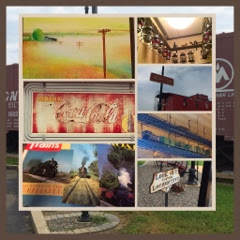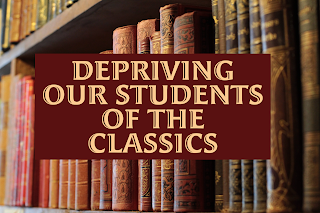As an “experienced” homeschool mama, I find myself often asking the same questions I asked when I first began homeschooling twelve years ago. Surely I should just “get it” by now. But the same insecurities often come back to me during the more difficult days.
Am I doing enough?
Am I doing too much?
Should I be more structured?
Should I be more relaxed?
Is there a magic curriculum that will just do its stuff and give me the desired results?
Should I stick with what I’m doing?
Is my child succeeding?
Question after question plague my mind some days and I wonder if I’m somehow failing my child. Despite having twelve years of homeschooling experience and three graduates successfully managing adulthood, I still find myself questioning and reading and researching. I pray and give it to God, and still wonder. I read a little more and rinse and repeat.
You see, I’m that mom. I’m that mom that loves to research. I’m that mom that never throws away materials that might one day come in useful. (The boxes of books and curriculum in my garage attest to this fact.). I’m that mom that loves to meet with other homeschooling mamas and discuss what worked for them and what didn’t... and why. I’m the mom, like many of us moms, that has a head full of ideas and hopes and dreams, but sees the tough days and all the questions in her mind as a personal reflection of where she might fail her child.
And now I have another teenager.
It was so much simpler when she was a little sprite that loved to dance to the Hooked on Phonics videos and sang her math facts as she wrote the answers in her messy, left-handed writing. The days when fall leaves were a fascination and finger paints were a joy have faded.
Now she wants to study oceanography. I love the ocean. I have lived by two oceans in my life. I want her to be able to dive in (literally would be great) and learn to her heart’s content. But we live in the Midwest. My snowplow-driving hubby is on call tonight with a wintry mix expected. Trying to find hands-on oceanic activities is a little challenging when the Atlantic Ocean is 866 miles away and the Pacific Ocean is nearly 2000 miles away.
Yes, she has studied the ocean with her earth science studies, but she is missing the experiential aspect of learning oceanography. The closest we come is Lake Michigan. And while she may one day get to smell the salt water, collect shells on the shore, and swim with dolphins; it won’t be in the next year.
And so, the doubts enter in. I doubt the reruns of Hawaii Five-O will substitute. Am I insane for wanting to purchase books on oceanography, perhaps look up educational videos, but know she will be studying something that she can’t experience at this point in time? And isn’t the earth science studies something that she needs to move past so she can meet the requirements for high school next year with biology and chemistry, etc?
I bounce back and forth between two trains of thought. I tell myself that we have studied centuries of history, but didn’t live at those time periods. Just today we finished an advent book that dug into the birth of Jesus, studying the time period of Jesus’ birth and the Roman rule over Israel at the time. We weren’t there. We didn’t get to see Baby Jesus be born or experience the angelic host as the showed themselves to the shepherds. And yet, I don’t feel as if I have failed in any way because I could only offer my child the wonder of Christmas without the experience of “being there.” My goal was to emphasize the meaning of Christmas, to build up my daughter’s knowledge and love of Jesus. We may not experience ancient Israel, but we do experience Christ. Would I not be short-changing my child if I didn’t give her the wonder of the birth of Jesus? Even if our minds have to imagine the young Mary, giving birth to her first child among stable animals?
Is it not the same with the ocean? Beyond learning the basics, if my daughter is fascinated by an ocean she has never seen, shouldn’t I indulge her interest? Will she not learn so much more about the world as it relates to many other areas of science if she studies oceanography? Will she not learn about wildlife and sea creatures in her study? Will she not go even deeper into weather by studying occurrences that happen over the ocean... like hurricanes and tsunamis and tropical storms? Will she not learn more about gravity and even space as she studies ocean currents? Will she not touch on biology and astronomy and even some chemistry as she digs and studies?
Won’t she one day stand on an ocean shore and be able to smell the salt water, feel the coolness of the water on her skin, hear the waves crashing in a soothing rhythm, and be able to name the shells and plants and types of fish swimming in the shallow reefs?
After all, she loves the writings of C.S. Lewis, but isn’t going to England this year. She can still imagine the country and switch into an English accent in a heartbeat. She won’t be going to Narnia, but she still can learn the lessons Mr. Lewis so eloquently brought to life through his stories.
These are the thoughts that swirl through a homeschool mom’s mind as she contemplates what to study next and if she should stick to the prescribed curriculum plans or venture on a side quest.
Homeschooling means I can give my child the world, even if I can’t do so physically at this present time. Homeschooling brings options. And with those options come questions. Sometimes those questions are small, like which phonics program to use for my creative, ADHD girl. And sometimes those questions are the size of an ocean.
It would be easy to just go with what’s next in the carefully chosen curriculum. After all, I selected a curriculum that is quality, that meets college entrance requirements, that is academically sound but set on a solid Biblical foundation. Carefully laid plans can bring a path, a direction. They can also shut doors on rabbit trails and curiosity.
Homeschool moms (and dads) take on a huge responsibility when they decide to shoulder the education of their children. And while the years of experience often bring the wisdom to discern what is busy work and what is relevant, sometimes in saunters doubts and questions. For me, letting my child wander off the path to dive into her own interests was easier somehow when she was younger.
We spent nearly two years following passions. My child’s interests in those two years were vast. She studied horses, weather, volcanoes, Greek mythology, Harriet Tubman, the Underground Railroad, and anything else that caught her interest. She devoured The Bobbsey Twins and American Girl. She read nearly every Andrew Clements book in the library. Together we read Inkheart and The Narnia series and Harry Potter. I took a leap of faith and let her explore, let her learn what got her attention. In typical ADHD style, her hyper-focus let her gain vast amounts of knowledge. I could barely keep up with her as she devoured books and documentaries.
But as high school nears, I find myself more hesitant to take that leap. I find myself with those ocean-sized questions returning. After all, doesn’t she need to be exposed to more than just what interests her? Doesn’t she need more structure as she prepares for whatever God has for her future? And don’t I want that routine, that knowing what’s next in the scope and sequence? Don’t the events of this past year prove to me that it isn’t just important but vital that my girl has a strong grasp of history and civics? Haven’t we seen many examples students that have graduated with a poor understanding of history and socialism and the Constitution willing to make decisions about our country that causes more damage than good? And as a Christian, don’t I want my child to be able to think critically instead of just believing what is on the news or in a social media post?
How can deciding whether to veer from the science route be this big of a deal? Having taken the road less traveled for those couple years of exploration, I know one interest often leads to other areas. Will it just be a substituted science path? Unlikely.
My daughter at the moment also has developed an interest in Japanese anime. She purposely chooses to watch the Japanese show with subtitles instead of the Americanized version. Often she will walk into a room speaking phrases in Japanese that she has learned from what she is watching.
But learn she does. She has been taking Spanish for school; but because her interest is in Japanese at the moment, she has learned more of the Japanese language in a few weeks than the Spanish she has studied for months. I know when a child is interested in what they are studying, he or she absorbs information like a dry sponge does water. And I also know that if they are just taking the class because it’s expected and listed on the planner, the lessons might not be retained as well. Ironically, if someone else was in this situation and asked for my advice, I would tell them to let their child study the oceanography. I am actually a little shocked that I’m struggling with this, because I have read the science about how children learn. I know following a natural curiosity leads to deep learning and a development of study skills that are unrivaled when compared with any other method.
This year has been difficult. Money has been tight. I have had to plan very carefully in every area of our finances. A set plan brings a comfort because I know it checks all the boxes. The fact that I have a lot of the materials also is reassuring because I don’t have to worry about straining an already tight budget any further. Even if I let go of what my plans say our homeschool would hold for the next year or so, I’m still bound by budget constraints.
Ocean-sized questions mean I give the matter some ocean-sized prayer. To all those homeschool mamas out there with similar questions about what path to take, know you are not alone.




















































